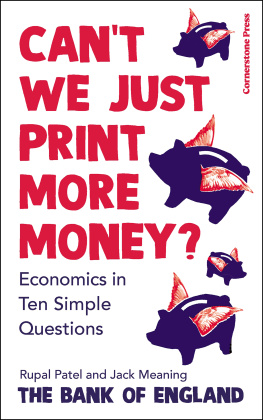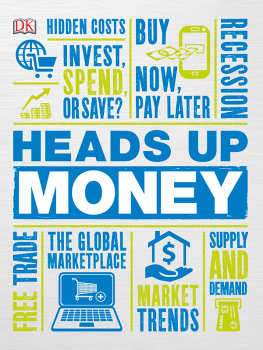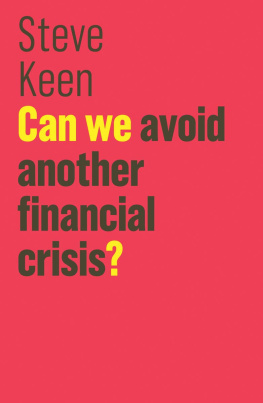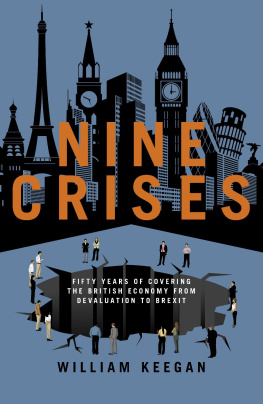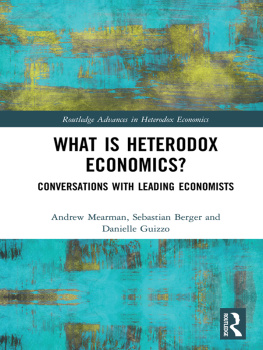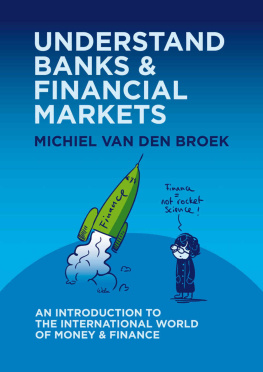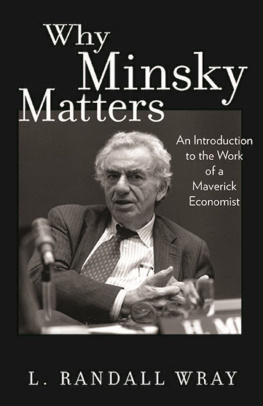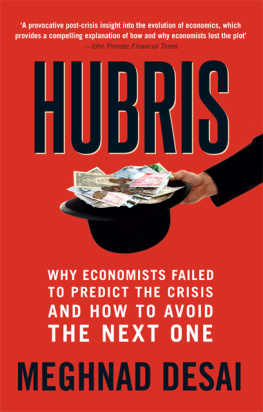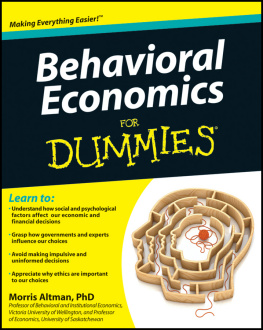

Rupal Patel and Jack Meaning
CANT WE JUST PRINT MORE MONEY?
Economics in Ten Simple Questions
The Bank of England

Contents
About the Authors
Rupal Patel and Jack Meaning are economists at the Bank of England, the UKs central bank. Founded in 1694, the Bank of England was created to promote the public good and benefit of the people. How it does so has changed a bit since then, but the Bank still plays a crucial role in the economy printing money, setting interest rates and regulating the financial sector. Since 2017, the Banks staff have been on a mission to get outside the City of London and promote economic literacy across the UK: whether by delivering talks in schools, running Citizens Panels on peoples economic experiences, or, now, publishing this nifty primer on economics.
To our families, for their unending support andencouragement. And to all aspiring economists hoping to understand and shape the world around them.
Foreword by the Governor of the Bank of England
My secondary school education took place in the 1970s, which was not a good time for economies around the world. I remember doing my homework by candlelight during the three-day week, and experiencing the effects of inflation hitting more than 20 per cent. It left a lasting impression, making me acutely aware of the impact of economics on peoples lives.
You wont be surprised to know, then, that Im a great advocate of economic literacy. Even a relatively basic understanding of economics can be useful. On one level, economics can help you to make a bit more sense of the news whether its decoding acronyms like GDP and QE, or helping to explain why the economy is growing or shrinking. More broadly, economics can give you tools to help you make better decisions, whether about money or pretty much anything else. If you want to dig deeper, economics can also be a fascinating and enjoyable discipline about which to learn (but then I would say that ).
Which brings me to this book; something of a first for the Bank of England. It looks quite different from most things the Bank has published over the last three centuries. For a start, theres only one equation in its 320 pages, and thats a pretty straightforward formula containing just as many letters as a Wordle. But this book hasnt come out of the blue. Rather, its part of a wider effort to help explain our work and the workings of the economy more broadly in a way that more people can easily understand.
For example, we now produce versions of our flagship reports, such as our quarterly summary of how the UK economy is performing, in a shorter, more accessible format, using everyday language and simple graphics and illustrations. Weve also created a Knowledge Bank section on our website, which provides an introduction to money, banks, inflation and interest rates, among other things. It has proved popular, attracting more page views than almost any other part of our website. If you enjoy this book, Id urge you to take a look.
Alas, not everyone regularly checks the Bank of England website, or eagerly awaits publication of our quarterly economic reports, so weve been making an effort to reach people in other ways. The Banks Deputy Governors and I regularly participate in our Citizens Panels across the country, which are open to any member of the public to attend. We hold these so that we can hear first-hand from people about their experiences of all aspects of the economy, from the cost of living to how easy it is to find a job. They also allow us to explain the decisions we have taken, and for people to ask us anything they like about our work. Alongside these events we also run Community Forums in partnership with charities across the UK, which help us to understand how the people they support are being impacted by the economy.
This book is the latest of the Banks attempts to spread the word about economics. Over the past few years, we have developed an extensive education programme that introduces young people to the basics of money management and key economic concepts. We also have more than 500 Bank colleagues who deliver talks in state schools around the UK, discussing a range of topics including the work of the Bank and their own career journeys. In this book, weve drawn on our experiences creating the education programme to produce an accessible, one-stop guide to basic economics.
I try to do these school talks myself regularly, and the next time I do Ill be carrying a copy of this book with me. Hopefully, some of the students will have seen it before: we plan to send one to every state school in the country. And, if they have, I hope theyll have discovered how economics is a subject that can help us both to understand the world around us and to tackle some of the biggest challenges facing it, from poverty to climate change. Who knows, it might even encourage one or two to think about studying it in greater detail. One day they could end up working alongside Rupal, Jack and me here at the Bank of England.
Ive long felt that working at the Bank provides a unique opportunity to use economics to promote the good of the people of the United Kingdom, as our rather grand mission statement puts it. It is because of our unique role, and the responsibility that comes with it, that I am so delighted that the Bank has produced this book. Were indebted to Rupal and Jack, and the dozens of colleagues who have worked with them on this project, for producing a fun and informative introduction to a discipline that although often ridiculed, especially when things dont pan out as expected Im convinced helps make the world a better place. After reading it, I hope youll understand why.
Andrew Bailey
Governor of the Bank of England

Introduction
Economics, everywhere
The Bank of England looks like a forbidding place. Located in Threadneedle Street at the heart of the City of London, the Banks building is adorned with classical columns, intricately carved stonework and ornate statues. Its grand front entrance gives it the feel of a fortress; its huge bronze doors, usually flanked by security guards, seem designed to deter passers-by from entering.
For over three centuries, the Bank has stood on this site as a symbol of the English and later British economic establishment. Yet for all that, the Bank of Englands headquarters is an office like any other. Every weekday morning, hundreds of slightly nerdy economists and their colleagues pass through its imposing doors. And at lunchtime every day, these Bank staffers, just like all other office workers up and down the country, file back out to stretch their legs, escape their screens and search for something to eat.
If you were to follow one of those hungry economists on their lunch break, you would discover that economics doesnt just matter within the walls of the Bank of England. It is everywhere. Lets start with what to eat. Within the Square Mile of the City of London there are over 500 cafes, restaurants and takeaway venues, serving an incredible variety of food from Japanese sushi to Italian antipasti, Middle Eastern mezze to good old British fish and chips. But who decides what is going to be on offer? How do the various shop owners know whether it is better to sell doughnuts or cupcakes? And why are there a dozen coffee shops on each street, but only one place selling jellied eels?
Next page
